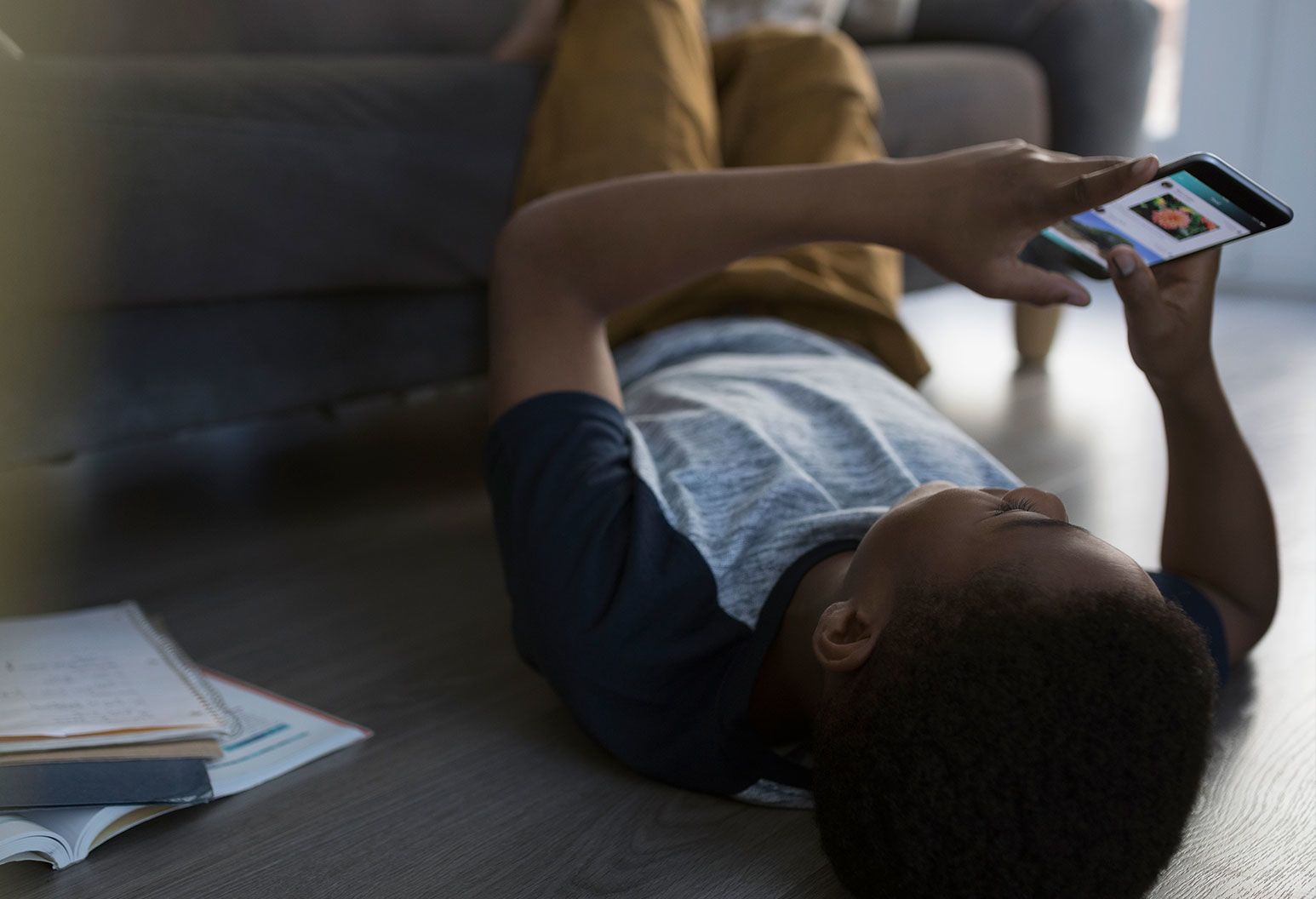parenting
My Ex Doesn't Want To Co-Parent

Adolescent psychiatrist Michael Birnbaum, MD, weighs in on what’s normal social media behavior for teens—and what’s not
3 min read
My 16-year-old son recently posted something on a friend’s Facebook page that shocked me. My husband and I have always tried to instill strong ethics and good morals in our kids. So, when I saw that my son had posted something so crude, vulgar, and frankly gross, it really made me worry. When I asked him about the disturbing post, he shrugged it off and said it was “just a joke” and that another friend dared him to do it. How can I tell what’s normal “acting out” teen behavior and what could be a warning sign of a more serious problem?
"Worried Mom"
I don’t blame you for being concerned about a situation like this, but it’s helpful to take a step back and look at the bigger picture. It sounds like this Facebook comment was truly a one-time event, in which case, it’s probably nothing more than a teenager making a momentary bad decision on social media.
Of course, one of the challenges of living in the digital age is that your son’s poor decision is now out there for public consumption. Social media can be like a tattoo—it never goes away.
What I like to remind parents is that teenagers who are making smart, healthy decisions in the real world are likely to be making smart, healthy decisions in the online world, too. The flip side is that if they are showcasing unusual behaviors online, they are probably acting this way offline, as well.
But if there truly is something to be concerned about, you would likely be noticing problems in other areas of your son’s life. For instance, if he were developing depression, you would see changes in his sleep and mood, and he would start to withdraw socially.
What social media provides is a unique window into a teenager’s mind. So, if your son suddenly and dramatically alters how he uses social media—deleting a lot of posts, or engaging in strange conversations over the course of many days or weeks—those could be signs of a possible mental health issue. When kids are experiencing early signs of psychosis, for instance, they may go to extremes and act and do things online they might have never done before.
It’s also a good idea to pay attention to the conversations that other people are having in response to your son’s social media posts. Friends can pick up on behaviors that parents may not have noticed. I’ve heard from several parents who’ve told me that it was friends of their children who reached out to them because they were concerned about what their child was doing on social media. So, think of your son’s online network as 500 extra eyes and ears that are monitoring what is going on and can report back or alert you.
Recently, there’s been a lot of talk about how heavy social media use can cause depression in teens, but that’s not necessarily true. Social media doesn’t cause mental illness, but it can be an accelerator. For kids as well as adults, it’s hard not to fall into that trap of seeing other people’s lives as constantly happy. So, when kids are exposed to this “fake evidence” that supports the idea that their lives suck while all of their friends are happy, that can exacerbate their feelings of depression or anxiety.
My advice is to keep the lines of communication open with your son. Make it a priority to set aside “offline” time (away from screens) so you can discuss any problems or issues openly and honestly.

The Well is Northwell Health’s commitment to the future of health care. In this time of information overabundance, much of which is inaccurate, unhelpful, or even difficult to understand, Northwell Health is on a mission to make a difference as an honest, trusted, and caring partner. The site connects with consumers to provide them with personalized content that reduces their stress, makes them laugh, and ultimately feel more confident and capable on their healthcare journey.